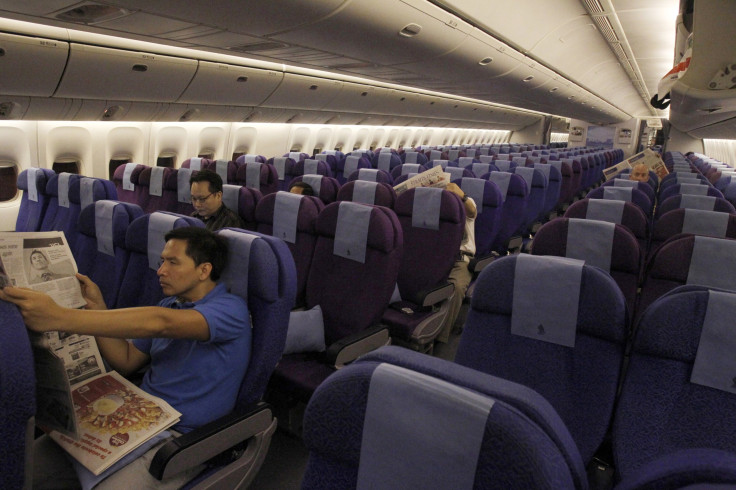FAA Considers Easing Restrictions On In-Flight Electronic Devices During Takeoffs And Landings

The act of putting away your electronic device during a flight’s takeoff and landing might soon be a thing of the past. A majority of the 28 members of a U.S. Federal Aviation Administration, or FAA, advisory committee voted during a closed-door meeting on Thursday to allow passengers to use smartphones, tablets, electronic readers and other devices during takeoffs and landings, anonymous sources told the Associated Press.
According to AP, the committee’s recommendation will be sent on Monday to FAA, which will render the final decision on the matter.
While it’s certainly an encouraging development, air travelers shouldn’t be jumping for joy just yet. As AP pointed out, you still wouldn’t be able to surf the Web, download anything or talk on the phone. “You will not be able to play ‘Words With Friends,’ you will not be able to shop, you will not be able to surf websites or send email,” Henry Harteveldt, an airline and travel industry analyst with Hudson Crossing, told AP.
However, passengers would be able to use airplane mode to work offline using their electronic devices. “You will be able to read or work on what’s stored on the device,” Harteveldt said. “You want to edit that PowerPoint? Great. You want to watch ‘Breaking Bad’ and you have it downloaded to your smartphone or your tablet? You can continue to do that.”
The FAA advisory committee’s recommendation is welcome news for companies such as Amazon.com Inc. (NASDAQ:AMZN), whose Kindle electronic reader has become a staple of in-flight travel. “We’ve been fighting for our customers on this issue for years -- testing an airplane packed full of Kindles, working with the FAA and serving as the device manufacturer on this committee,” Amazon representative Drew Herdener said in a statement cited by AP. “This is a big win for customers, and, frankly, it’s about time.”
U.S. Sen. Claire McCaskill, D-Mo., is one of the prominent politicians leading the charge against the FAA to allow devices during takeoffs and landings. “These devices are not dangerous. Your Kindle isn’t dangerous. Your iPad that is on airplane mode is perfectly safe,” she said.
AP cited a letter from Delta Air Lines Inc. (NYSE:DAL) to FAA that noted last year there had been 27 reports of in-flight interference from electronic devices made by pilots of 2.3 million flights over a two-year period. And none of the reports could be confirmed.
According to AP, there’s no telling how long it would take to implement the potential changes. They could take effect as soon as early 2014 or they could drag on for more than a year. If they take too long, however, McCaskill told AP she would introduce legislation to jump-start the process.
© Copyright IBTimes 2024. All rights reserved.





















